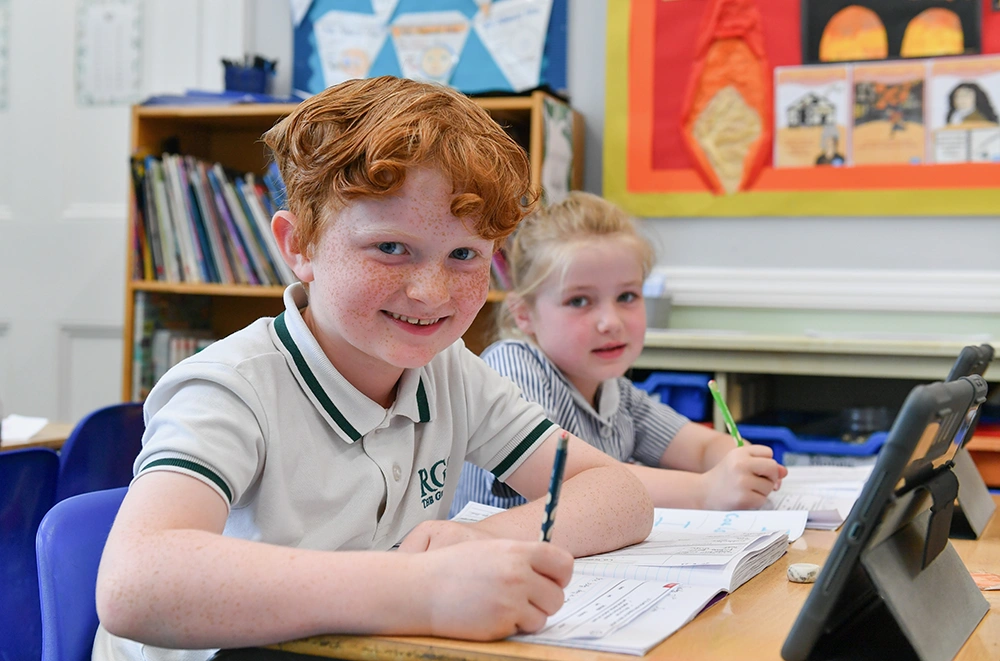Our Safeguarding Principles
At The RGS Worcester Family of Schools we are committed to safeguarding and promoting the well-being of all the pupils in our care, regardless of age, gender, religion or beliefs, ethnicity, disability, sexual orientation or socioeconomic background. We provide a caring, positive, safe and educationally stimulating environment that promotes spiritual, moral, social and cultural development.
Our Safeguarding Policy
The safeguarding and welfare of our pupils is our priority, and we recognise that all staff, including temporary staff, volunteers and Governors, have a full and active part to play in protecting our pupils from harm. We ensure that everyone understands their roles and responsibilities in respect of safeguarding and is provided with the appropriate training to recognise, identify and respond to signs of abuse, neglect and other safeguarding concerns that we may have about pupils. Necessary steps are taken to prevent the employment of unsuitable individuals.
Appropriate action is always taken where there is an incident, or there are concerns of abuse. Support will always be provided to the individual(s) who raise or disclose a concern. Sometimes we may need to share information and work in partnership with other agencies when there are concerns about a pupil. We will ensure that concerns about our pupils are discussed with their parents or carers first unless we have reason to believe that such a move would be contrary to the pupil’s welfare. Confidential, detailed and accurate records of all safeguarding concerns are maintained and securely stored.
We also support the welfare and safety of all pupils by ensuring that Child Protection is included in the curriculum to help children stay safe, recognise when they do not feel safe and identify to whom they can talk if they have concerns.
We understand the crucial role that a school can play in identifying a safeguarding problem for a child and their family as it emerges and that, by putting in place Early Help at this stage, we can often prevent problems from escalating into something more serious. We have invested heavily in our Early Help provision as a school, and we can offer dedicated one-to-one support from a member of our experienced and trained Pastoral Leaders as well as with our fully qualified Nurses, School Counsellor, or Relaxation Therapist. In addition, we can support families by organising for other Early Help specialists to come into school to work with a pupil during the school day. Such external specialists may already be working with a family, for example, a Bereavement Counsellor, or can be a result of an Early Help referral that the school can make for a family through Worcestershire Children First.
For more details, please refer to our Safeguarding Children Policy, which can be found in our Policies section and click to read the Department of Education’s Keeping Children Safe In Education Part One.
Online Safety
In this digital age, we all rely on and benefit from the use of technology. We realise how challenging it can be for parents to ensure that their child remains safe, particularly when using the internet. We also appreciate that you will want to have measures in place to ensure that your child does not view inappropriate material from their mobile device or from a device you have at home. Please refer to our Safeguarding Policy, in our Policies section, to see what we have in place to protect your child in School
The CEOP Think You Know website provides up-to-date advice and guidance for pupils and parents.
Further information on E-safety:
Get Safe Online – Expert tips to help you manage your digital footprint
NSPCC – Advice and support for you and your child to help keep children safe online.
Website and Advice Sheets for Parents
Some links for Newsletters and Websites to help parents and young people on a range of safeguarding issues:
Parents Protect – a website to help parents protect their children against sexual abuse.
My Mental Health – Advice for parents, professionals and young people on Mental health and general well-being support
Teenage Relationship Abuse – a parents’ and carers’ guide to violence and abuse in teenage relationships.
Sexting – how to talk to children about the risks of sexting, and what you can do to protect them (NSPCC).
Get Advice – CEOP advice on talking to children about sex, relationships and their lives online.
Chat Danger – Advice for parents and carers on keeping their child safe online, including parental controls. There is also a complete guide to protecting a child’s privacy online.
Self-Harm in Young People – Information for parents and carers and anyone who works with young people.
Know the Signs – Information on suicide and self-harm for parents (Samaritans)



